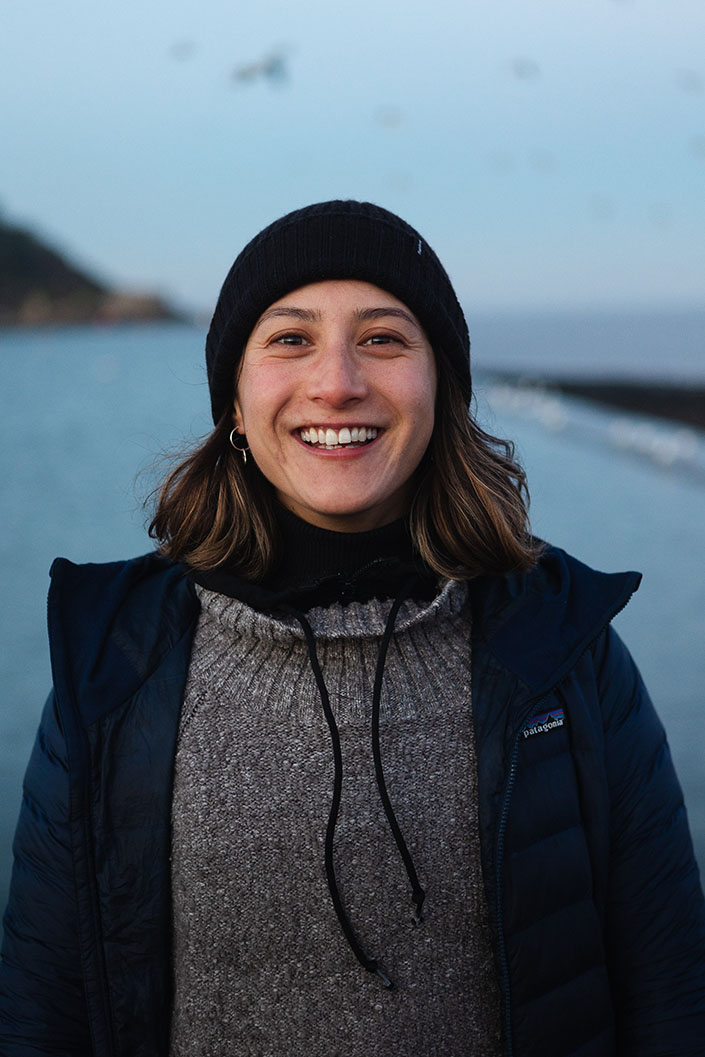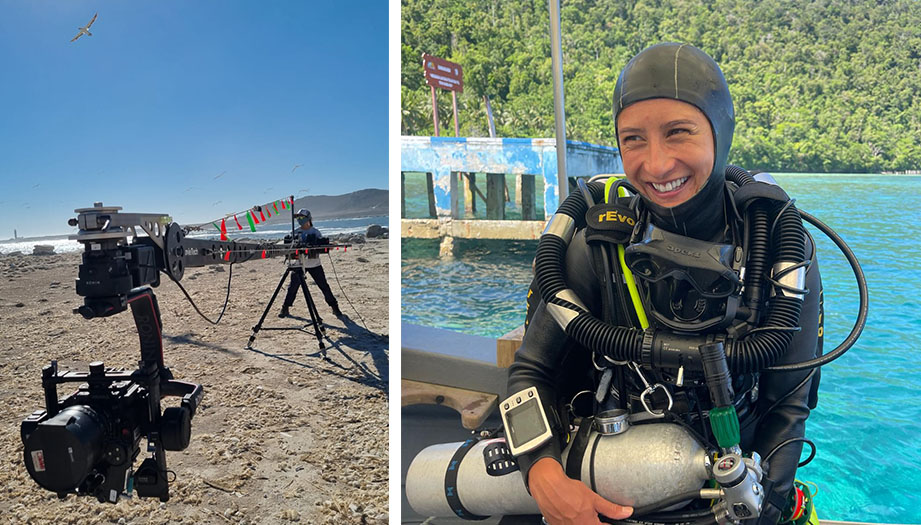Southport BSAC membership member and underwater researcher Mae Dorricott spent three years serving to create this weekend’s Ocean episode specializing in the Banggai cardinalfish in Indonesia, capturing beautiful footage of mouthbrooding behaviour.
This Sunday, the BBC will air ‘Ocean’, the second episode in its beautiful new wildlife collection Parenthood, narrated by Sir David Attenborough. Documenting the trials and tribulations that animals expertise whereas elevating their younger, the collection was filmed over three years and on six continents, protecting jungle, grasslands, deserts, and the ocean.
Produced by Silverback Movies, the corporate behind the latest David Attenborough feature-length movie, Oceans, Parenthood has already captured the creativeness of its audiences. And its subsequent episode – which airs this Sunday, 10 August – guarantees to be simply as exceptional.
For Mae Dorricott – BSAC diver, Southport BSAC membership member and underwater researcher for Silverback Movies – Parenthood has additionally been the job of a lifetime.

Having spent three years serving to to create this weekend’s Ocean episode, Mae displays on her extraordinary expertise.
A former 2017 Our World Underwater European Scholarship recipient and a marine biology graduate with a grasp’s in science communication, Mae has been enthralled by the underwater world since childhood. She can be keen about participating wider audiences in the necessity to defend our marine atmosphere.
“I’m a self-proclaimed water child!” Mae explains. “I’ve been extremely fortunate to see magic in nature, particularly within the ocean and really feel a necessity to guard it. If we are able to share that feeling with others by these documentaries, hopefully we are able to hold nature and wildlife within the highlight.”
Because the underwater researcher for Parenthood’s Ocean episode, Mae was tasked with sourcing distinctive tales of parenting within the marine atmosphere. Throughout her intensive analysis, she found the fascinating Banggai cardinalfish.
“Many critters within the sea do minimal parenting, because it’s a tough atmosphere to carry onto your little one! Nevertheless, I knew that mouthbrooding can be an attention-grabbing subject to discover – it’s when a feminine deposits her eggs into the daddy’s mouth for safekeeping. It’s visually spectacular to see – just a little fish, mouth agape, and full of eggs.
“I found that the Banggai cardinalfish not solely mouth brood however are one of many only a few fish to carry their eggs of their mouths till they hatch after which hold the wriggling fry there for a number of extra days till spitting them out someplace secure. It was screaming to be filmed!”
Along with her concept given the inexperienced mild, Mae was tasked with main the shoot, her first time as director. This concerned coordinating a 72-hour journey for her four-strong crew by airplane and sea to the Banggai archipelago in Central Sulawesi, Indonesia. Residence for the subsequent two weeks was a conventional homestay proper on the seaside, which Mae describes as ‘paradise’. However she was initially involved that, after all of the analysis and planning, they might wrestle to seek out the Banggai.
“That first day, I used to be so anxious – what in the event that they weren’t there? However that was quickly dispelled as we swam by the luxurious seagrass that merged with the coral reef to seek out Banggai in almost each nook and cranny.”
The underwater digital camera operators had been truly capable of seize the elusive ‘egg switch’ from the mom to the daddy Banggai on the very first dive.
“The crew would spend almost six hours a day within the water, and it took my breath away each time I dived there. It’s the most biodiverse place I’ve ever been to. We’d mark up one of the best teams of Banggai with SMBs and return to them every day, watching the fish intently for the important thing behaviours and ready for the appropriate second to press file.”
In addition they recorded footage of the next launch of the now-hatched fry from a male Banggai’s mouth onto the coral reef. The BBC web site has since described the footage Mae’s crew captured of the Banggai as ‘one of the vital charming moments of the collection’. This, says Mae, ‘fills her with immense pleasure’.

“It’s one of many first tales I discovered and the primary story I used to be capable of run with and direct. I believed it could make an attractive story full of color, marvel, and character and so to see the infant Banggai faces peer out of their father’s mouth on display screen, with Sir David Attenborough narrating all of it…nicely, it definitely helps with the imposter syndrome!”
Having certified as a BSAC diver on the age of 14, and with a UK scuba diving dad (BSAC’s North West Regional Coach, Stephen Dorricott), Mae credit her UK diving experiences for serving to to equip her for the function of underwater researcher.
“Occurring BSAC membership journeys has given me the crew abilities which were very important to my profession to date – understanding what we have to do collectively to get the job carried out and getting caught in the place it’s wanted, no matter that activity could also be. And it’s necessary to maintain skilling up as there’s all the time one thing new to see, and one thing new to study.”
Along with her Ocean episode lastly set to air on Sunday, Mae hopes her story of the Banggai cardinalfish will encourage extra folks to attach with and defend the marine world.
“People study by tales, and this empathy is vital to defending our pure environments. Parenthood is a collection of tales strung along with a theme of elevating the subsequent era in a altering world. I believe that resonates with just about everybody,” she provides.
Parenthood episode 2, ‘Ocean’ is on BBC1 on Sunday, 10 August at 7.15pm. The entire collection can be now accessible on BBC iPlayer.

